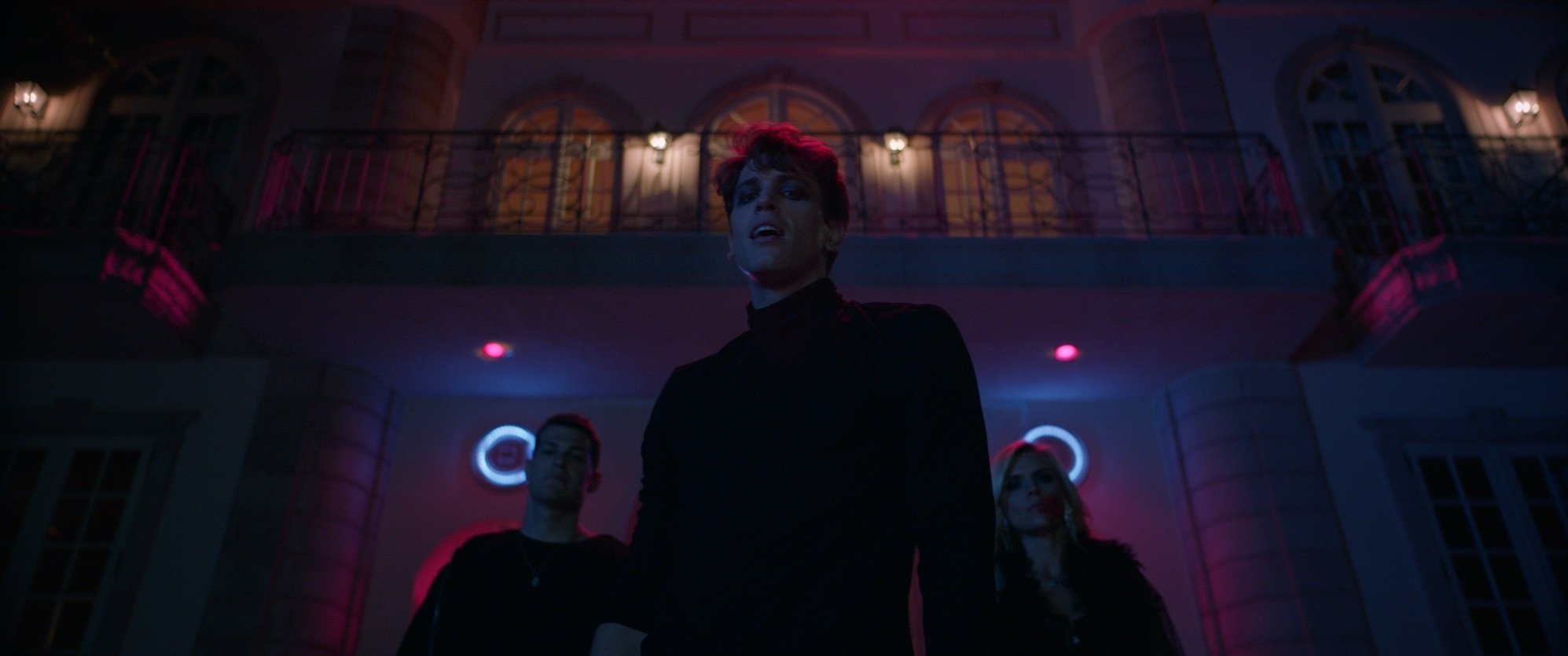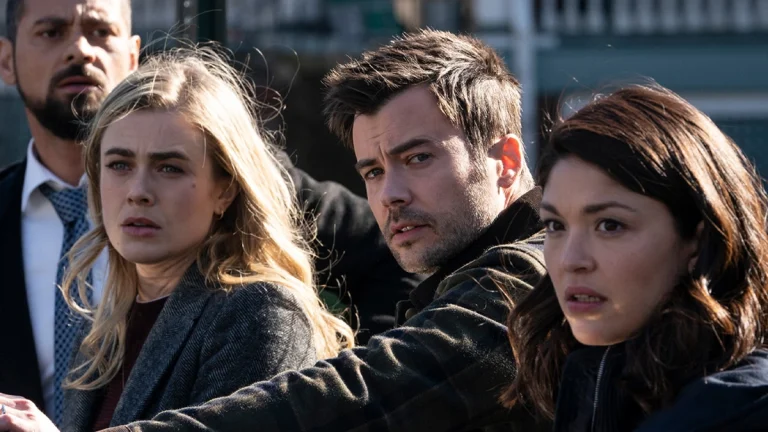There are certain cinematic experiences that make one forget about the real world outside. Its beauty transports you. Then there are some experiences which make one want to forget everything happening on the screen itself, regrettably. You want to shake your head out of it, as soon as possible. The Estate, helmed by debutant director James Kapner, unfortunately, falls on the latter category. It certainly has everything in the making of a good thriller, but in the first few minutes itself, there is an obvious turn-off with the proceedings.
Filled with some of the most unfathomable and obnoxious characters you will ever encounter on screen this year, here is one film that does not get exhausted of its own campiness and chooses to add some more. The result: a cartoonish mess of a film that tries hard to be smart but fails in every way.
Related to The Estate – Our Hospitality [1923] Review – Evoking Poetic Rhythm & Artistry within Slap-Stick Tradition
The Estate is written by Chris Baker, who also stars in it- which might make things more underwhelming because the character he plays, that of a tongue-in-cheek gay man living off his wealthy father’s luxurious L.A. estate. His name is George. That’s it. There’s nothing more to add. He shares the neon-lit, ultra-campy home with his stepmother Lux (Eliza Coupe). Stepmother is bored and asks son to get ready to accompany him to find a random guy for sex. Son agrees. Again, there’s nothing more to add. No surprises when they spot the hunky Joe (Greg Finley) at a local bar. He returns to their mansion for the night. The next morning, after the obvious greetings, it turns out that the dude is a hitman, and can help both leeches with a thing or two.
Dropping in to see them complain about the wretched behavior of their dad/husband (for Lux one of the reasons is that she was made to wear the same outfit she hates, twice), Joe wings in to plot and kill Marcello (Eric Roberts) and help them out of their despair. But beneath the surface, even Joe has his own motives to fulfill. When Marcello returns, things do not go as smoothly as planned.
Even with the numerous twists and turns, the action never surfaces above an amateurish, half-baked structure that places style over substance. The visual language of packing cool colors amidst dark themes reminds one of Almodovar, but Kapner is wholly disinterested in churning out any transition whatsoever, wholly galloping ahead with the plot. The lack here is that of the twists and turns (which I am not going to spoil anyway) which exhaust themselves of spirals and cease to add sense to the narrative. The main problem is with the lousy script, that feeds every stereotype of a thriller while taking turns in black comedy in a way that feels utterly out of place.
Also, Read – In Action [2021] Review – Bickering, self-reflective film is unbearably amateurish
Even if the action takes on grasp newer revelations, which frankly, pile up without any thrill, as an audience you do not really care for the characters. None of the character actions feel barely believable, from the very first shot itself.
Only Eric Roberts, in a supporting turn, seems to understand the material and have fun with it, and gives Marcello a kind of delicious edge to proceed with the action.
The test falls on the rest of the performances, and suffice to say, none stay afloat in the promiscuousness. Coupe stays one-note throughout, her transformations not as beguiling as her character seems to believe. Baker falls flat as George- his moody, passive attributes a tone-deaf contrast to the rest of his intentions. That his character is gay does not add anything to the story, neither does it stand on the ground of normalcy- plunging into every other stereotype instead.
With a handsome production design by Matthew Siltala, The Estate pulls many stops at bringing the brutal connivance with bright, candy-colored sets. Kapner plays it safe throughout, without leaving any further doubts about the intentions of the characters. The score creates a jarring effect on quite a few sequences, where the twists become cartoonish in their execution. For a crime story, The Estate has no real bite holding it through. Even with a swift pace covering a modest runtime of 85 minutes, when the runtime feels overlong, surely something is amiss.







![I Do Not Care If We Go Down In History As Barbarians [2018]: TIFF Review – ‘Critique of Pure Reason’](https://79468c92.delivery.rocketcdn.me/wp-content/uploads/2018/09/Barbarians-1-768x384.jpg)
